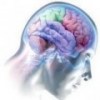Recent highlights from the brain blogosphere:
Can crossword puzzles help prevent senile dementia?
The current state of the brain fitness movement: as evaluated by the New York Times.
Spindle neurons evolved very recently - are they also the source of frontal dementia?
A new form of pharmacological brain enhancement - could this technique avoid the long-term risks of excitotoxicity (as might result from extensive use of ampakines?)
What about interrogation neurotechnology? Here's what military's director of psychopharmacology has to say.
Future prospects for interrogation neurotech.
Bird brains - and the possibility of "bird consciousness"!
New 3d brainmapping database and the possibility of using automated image search algorithms on this amazing data set.
Evidence that MHC genes may predict infidelity; this is the same group of genes involved in the allure of human pheromones!
Don't forget, though, that such pheramones can lead you astray if you're on hormonal birth control pills.
But maybe monogamy is a myth to begin with? Check out this post at Gene Expression.
A new blog - Architectures of Control - focuses on the design of systems, environments, and products which intentionally restrict or enforce user behavior.
Andrew publishes a book: "Data Analysis Using Regression and Multilevel/Hierarchical Models." Looks great!
The evolutionary history of music: a book review.
Children are "intuitively theistic," but how do perspectives on evolution change with age?
Is cerebellar malfunction the root cause of dyslexia? Tick Tock Brain Talk investigates.
"A resource for those interested in evolutionary thought, cognitive science, artificial life and artificial intelligence" will be of interest to many of you. Check out MachinesLikeUs.
Modern mathmatical proofs seem too difficult for human mathematicians; is there anything wrong with just letting computers do the proofs? Frontal Cortex opines.
Put on an interesting piece of music, and watch this 5 minute video. It needs a soundtrack, so seriously, put on some music. via Al Fin.
